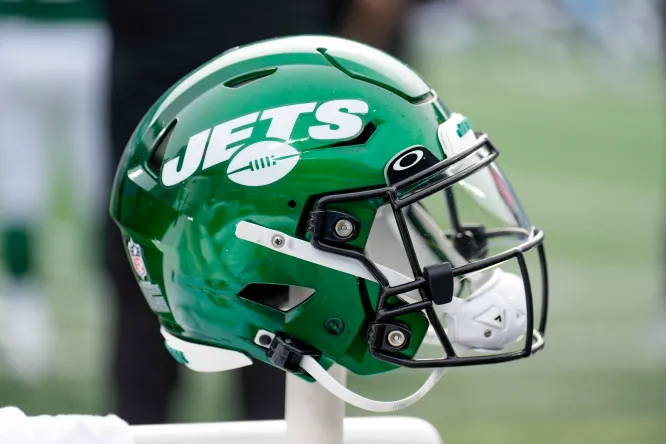The New York Jets are facing a pivotal draft decision centered on quarterback Aaron Rodgers’ needs: should they prioritize acquiring another playmaker or reinforcing their protection? This question is encapsulated by the potential selection of Georgia tight end Brock Bowers, who could fill a crucial role in their offensive scheme.
Previously, investing in an offensive tackle seemed like the obvious choice for the Jets, especially after adding Tyron Smith and Morgan Moses. However, these acquisitions have opened up new possibilities for General Manager Joe Douglas, potentially making Bowers a viable option with the 10th overall pick in the upcoming draft.

According to ESPN draft analyst Mel Kiper Jr., Bowers could seamlessly complement Rodgers, adding depth to their offensive arsenal alongside players like Garrett Wilson and Mike Williams. Despite being unconventional to select a tight end with such a high pick, Bowers’ exceptional talent and versatility make him an enticing prospect.
Examining the pros and cons of drafting Bowers reveals intriguing possibilities for the Jets. On one hand, his impressive collegiate performance, highlighted by his receiving prowess and versatility in various positions, suggests he could significantly impact their offense. Partnering him with current tight end Tyler Conklin could enhance their offensive strategy, particularly in utilizing “12” personnel formations to create advantageous matchups.
However, concerns linger about whether Bowers’ selection would address the Jets’ pressing needs, particularly their offensive line depth. With aging and injury-prone tackles, the Jets face potential challenges in maintaining stability upfront, raising questions about prioritizing a tight end over a lineman in the draft.
Furthermore, uncertainties surround Bowers’ transition to the NFL, including his size, speed, and collegiate usage patterns. While his playmaking ability is undeniable, history suggests that first-round tight ends often struggle to secure long-term success in the league.
Ultimately, the Jets’ decision hinges on striking a balance between immediate impact and long-term sustainability. As they navigate this critical juncture, the front office must weigh Rodgers’ preferences, team dynamics, and future aspirations to make an informed choice that propels them closer to their goals.










